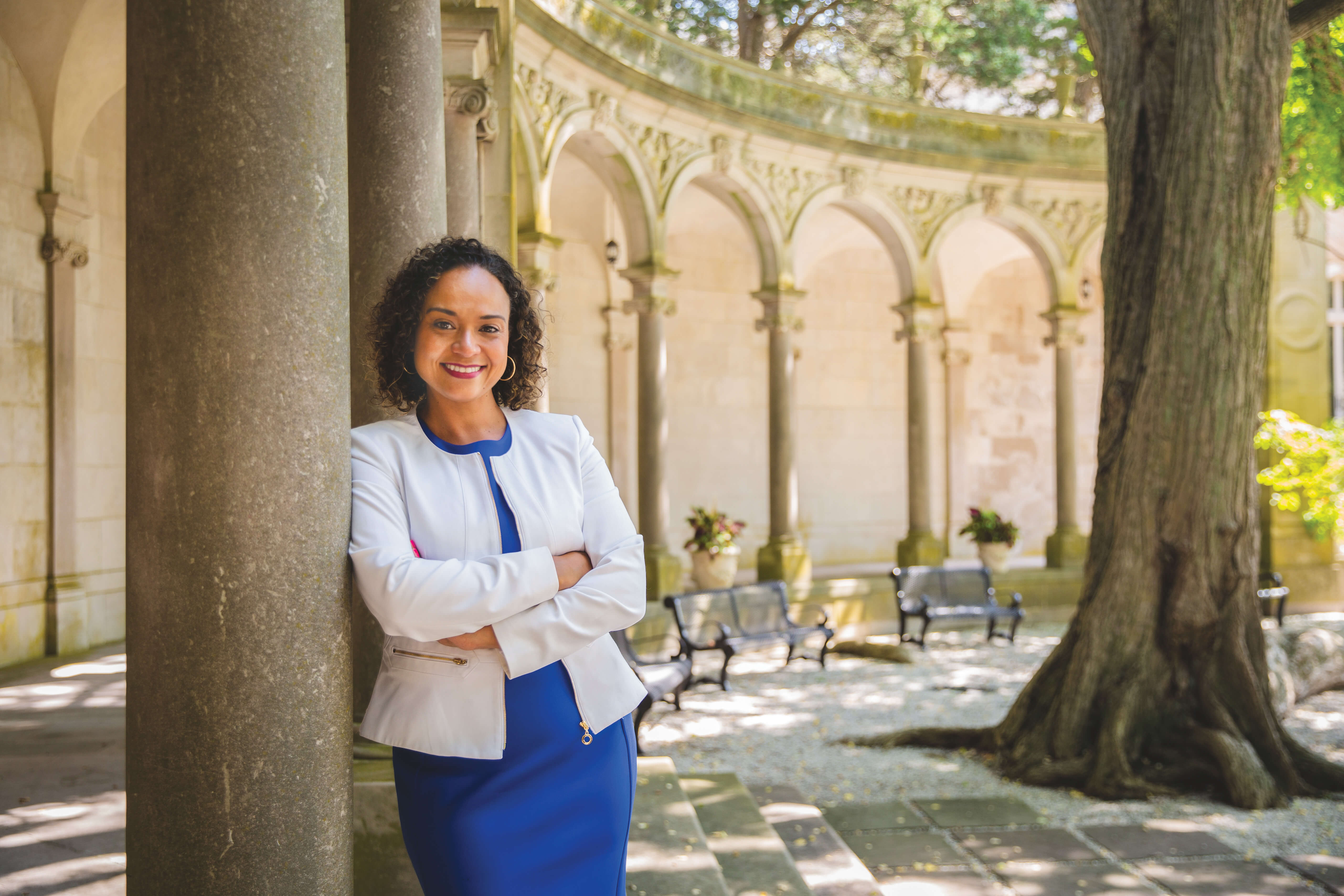
Championing Change in Education
Nicole Pulliam earns national recognition for her work in expanding opportunities for students and teachers.
The American Consortium for Equity in Education recently honored Associate Professor Nicole Pulliam, Ph.D., with its Champion of Equity Award for her work in higher education. Pulliam was chosen for her equity-based work over the past two decades, most notably through the Monmouth University Social Justice Academy, which supports K–12 school districts throughout New Jersey in their ongoing social justice education and curriculum development efforts.
Currently on sabbatical to focus on her research in equity-based work and reflect on the possibilities in the diversity, equity, and inclusion space, Pulliam spoke with us about her efforts to advance equity in education and the potential challenges of that work in an ever-changing political landscape.
Can you explain the work that led to your Champion of Equity award?
Equity-based work has been a common thread across my career. This is my 11th year as a full-time faculty member at Monmouth, and equity-rooted work has always been part of my teaching, research, and service. I started my career in higher education working for college access programs, so being able to lead equity-based work at Monmouth through the Social Justice Academy and other service opportunities has been an incredible honor.
My leadership of the Academy focused on breaking down the walls of academia to create meaningful impact. True equity work drives change in our communities. One example was leveraging funding to build the Academy from the ground up, transforming a vision into a lasting reality—impacting students and K–12 personnel.
I was able to really take a look and ask: How can we utilize this opportunity to better serve our School of Education students and better train and inform our faculty and K–12 personnel? It was beyond just teachers. Some of the equity work occurred directly in the classroom. For others, it was throughout their school buildings or districts. We also had a superintendent who went through the Academy and learned how to understand and put into practice equity-based work within their role.
How has your sabbatical advanced your equity-based work?
I’ve spent a lot of time thinking about how to continue my equity work and what that work should look like given the current political climate.
Equity work is often framed as an added bonus, but it’s a fundamental right. Every student, regardless of their background, deserves the support they need to learn and thrive. Equity acknowledges that not everyone starts on the same playing field. As educators we must ask: How can we create environments where every student thrives, both inside and outside the classroom? That work is even more critical now, given our political climate, particularly because there have been talks about dismantling the Department of Education.
What might the ongoing discussions about the future of the Department of Education and the changes to federal diversity, equity, and inclusion policies mean for educators and students?
Big picture, it would strip away standardized guidance and federal protections that will disproportionately impact historically marginalized and oppressed populations. What that means is we are leaving it up to states to decide what that looks like.
Compared to other parts of the country, such as Florida or other Southern states, we’re doing OK in New Jersey—but that’s never guaranteed. It becomes problematic when we leave it up to the states because that means state officials get to decide who gets equitable treatment. That could vary depending on who holds the political seats.
We’re seeing that play out with other rights stripped at the federal level. Equitable protections at the federal level ensure that we are all afforded the same access to opportunities and the same protections. It shouldn’t matter what state we live in.
When I consider how that relates to my work in education, I think about how we prepare our teachers and counselors to do equity work in their schools. Depending on where they work, what they’re going to be able to accomplish will vary greatly. We’re hoping for the best, but many folks are scared, particularly those who come from historically marginalized populations, me included.
What are your plans after you finish your sabbatical?
The beauty of a sabbatical is that I have a lot of time to think about what’s next. I’m a scholar at heart, and I’m moving my research forward, but I’m ready to move into a role where I can truly effect change at a greater level, such as a dean’s role and an eventual move up to the provost’s office.